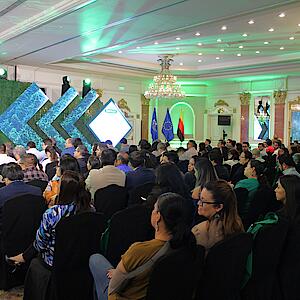CABEI promotes sustainable mobility for equitable growth in the region

The multilateral is working on a Sustainable Urban Mobility Program (PMUS) with which it will support projects that provide integral sustainable multimodal transportation alternatives.
Tegucigalpa, November 9Th, 2022.- The concentration of most jobs being far from workers' homes, the poor organization of the public passenger transportation system in the region, and the feeling of insecurity are factors that motivate many people to travel by private vehicle as almost the only alternative to transportation, generating negative effects in cities such as congestion and environmental pollution, among others.
The Central American Bank for Economic Integration (CABEI) is working on a program aimed at identifying and financing projects that provide integral sustainable multimodal transportation alternatives, promoting accessibility and safety for people, while contributing to improving energy efficiency and reducing greenhouse gas emissions in the Central American region.
"Latin America and the Caribbean is not only the second most urbanized region, but also the most unequal in the world and transportation is no exception, a challenge that must be faced through the implementation of effective policies and innovative ideas, which is why we are working to soon implement the Sustainable Urban Mobility Program (PMUS), with which we will outline the strategic lines that the Bank will follow to support the countries' efforts in the coming years," highlighted CABEI Executive President Dr. Dante Mossi.
For several years, CABEI has been supporting sustainable mobility initiatives in the region, such as projects to replace fleets of cars and buses with electric vehicles, construction of underground subway systems, cable cars, infrastructure, among others.






![[Translate to English:] [Translate to English:]](/fileadmin/_processed_/e/3/csm_WhatsApp_Image_2024-04-18_at_2.12.23_PM__2__590ef43ade.jpeg)
